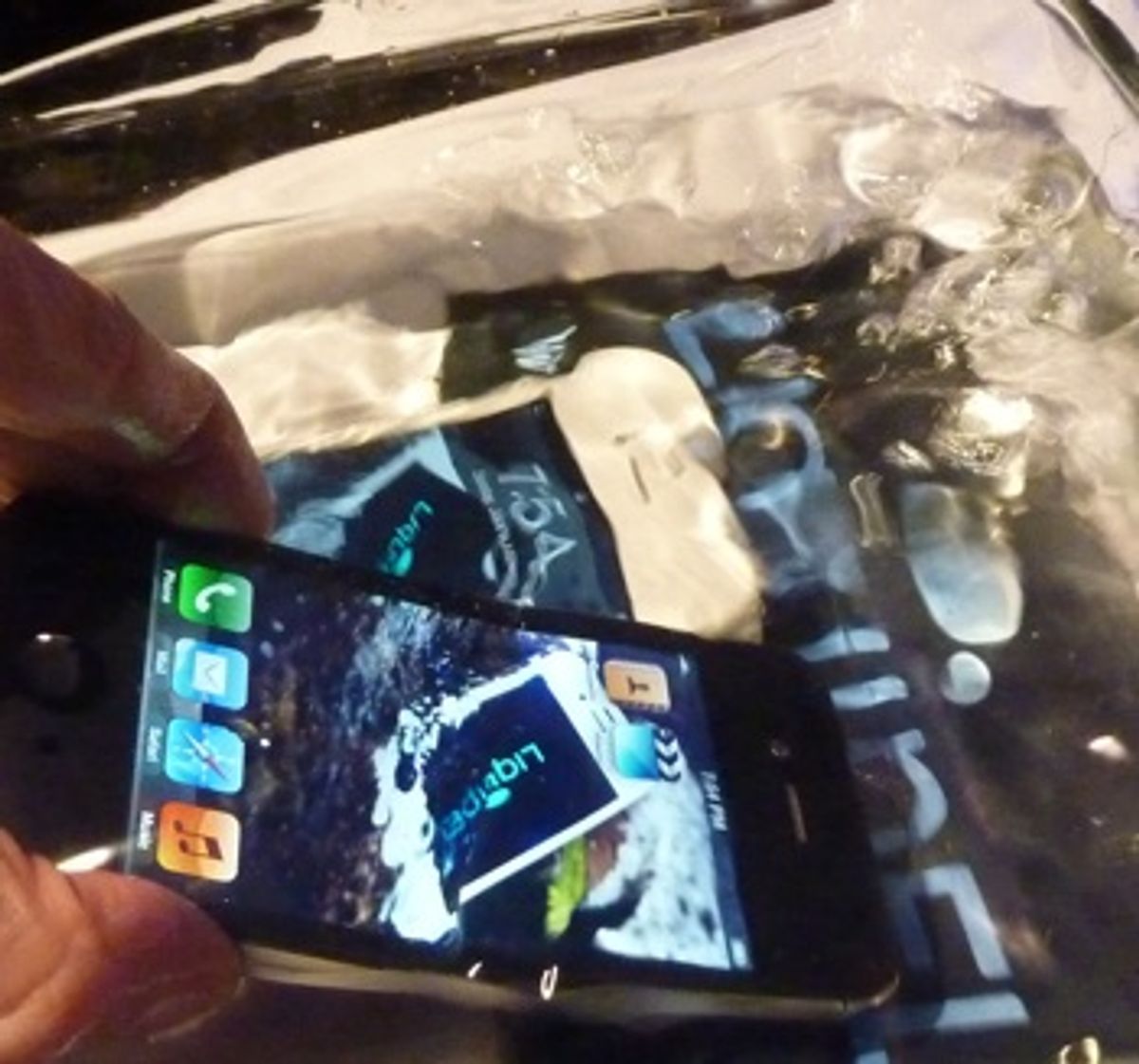On Saturday night, on the Eve of CES Eve at a pre-pre-CES event, Liquipel, a little company from Santa Ana, Calif., introduced a water-resistant coating for electronics devices that is invisible and doesn’t interfere with connections or touch screens. Kevin Bacon (not the actor), one of the founders, said that the company came up with the nanotechnology-based coating when it was trying to develop scratch resistant coatings—then realized that it had something vastly better—a water resistant coating.
This was truly a case of something I likely wouldn’t have believed unless I saw it. Bacon had iPhones working underwater—take them out and, once you dried them off, you couldn’t tell there was anything different about them. Bacon says his company waterproofs all sorts of gizmos—at $69 each, shipping included. I asked if the process worked on devices with removable batteries; indeed it does, in fact, he said, it can work even better than on sealed-battery gizmos, because its easier for the waterproofing material to infiltrate them. (I momentarily flashed on a description of an alien symbiont infiltrating humans in Ann McCaffrey’s, “The Crystal Singer” as he spoke.)
This was so amazing, I am still wondering if there’s a hitch. One suggested in an elevator conversation later that evening—would the process void product warranties? Would, say, Apple’s tech folks be able to tell your phone had been waterproofed if you sent it in for a repair? Liquipel says they won’t, no comment from Apple yet.
It’s also so clearly a hit product that you had to wonder, why hasn’t anyone else come up with this. Turns out you didn’t have to wonder long; this morning another company, HzO, on the TV show Good Morning America launched WaterBlock, a technology that appears to be essentially the same as Liquipel. No word on exactly when WaterBlock will be available; Liquipel expects manufacturers to embrace its technology soon, but, until then, you can send your gizmos directly to the company for waterproofing.
Update 1/12/12:
HzO plans to offer its technology to manufacturers, not direct to the consumer. Having manufacturers apply the coating themselves solves the warranty problem.
Update 1/19/12:
Apparently a third company announced an invisible-vapor-deposited-nanotech-waterproofing technology at CES, though I didn't see them or hear any buzz about them while I was there. P2i Ltd., from the United Kingdom, has patents that come out of research done for the defense industry. Its interesting that all three companies made their CES debut at the same time; I just hope the upcoming patent battle doesn't slow down this technologies path to the mainstream.
Tekla S. Perry is a senior editor at IEEE Spectrum. Based in Palo Alto, Calif., she's been covering the people, companies, and technology that make Silicon Valley a special place for more than 40 years. An IEEE member, she holds a bachelor's degree in journalism from Michigan State University.





